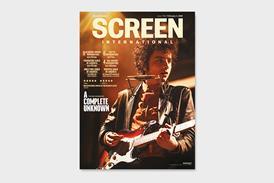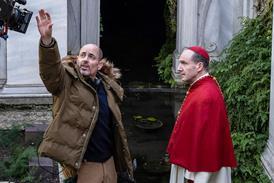Digital Britain lays an impressive and abitious framework for the future of communications in the UK, but leaves many questions unanswered.
Lord Carter’s Digital Britain report, published this week, is an impressive and ambitious framework for the future of the communications industry in the UK.
For the most part it makes the right calls on key media issues and many of its core principles and recommendations should be welcomed by the UK film industry and the broader UK creative economy.
“This package is a well-balanced attempt to tackle illegal downloading and protect copyright in a proportionate way”
Through both very specific measures and general principles, it delivers a roadmap for digital Britain that should benefit and encourage those involved in the creation and distribution of creative content - including the film industry.
Alongside Digital Britain’s plan to ensure the whole country has access to a minimum of 2Mbps and its $0.81 (£0.50) a month tax on landlines to fund the delivery of next generation broadband, it opens the door for “contestable funding” of the BBC licence fee - or at least the part that’s been earmarked to help with the transition from analogue to digital TV by 2012. After this point, Digital Britain argues that a “digital surplus” of something like $210m (£130m) exists in the licence fee and this money should be opened up to bids from others who provide public service content.
Regional news services are likely to be part of this, but there are countless other organisations ‹ including museums, galleries and theatres - which can make strong claims to now be creating “broadcast” material on their websites.
They too, along with other content creators - including film-makers - should have access to this fund for the right projects and ideas.
The BBC has already begun a battle to ensure the licence fee isn’t “top-sliced”, but the $5.7bn (£3.5bn) it receives each year from the public purse is now too big and important to be left to one organisation, albeit a fantastic institution that must be protected.
When it comes to copyright issues, Digital Britain makes it clear that “theft is theft”. Carter rightly ditched plans for a Rights Agency charged with enforcing copyright laws online, instead asking content owners and internet service providers (ISP) to draw up a new voluntary code.
If they fail to agree one, then communications regulator Ofcom will step in. Digital Britain proposes that ISPs will have to enforce a notification system, sending letters of warning to illegal downloaders and passing on their names and addresses if they persist. Notification and education will be key tools, with a target of reducing illegal downloads by 70% in the next year.
But if this fails, then “backstop” powers, giving ISPs the power to cap bandwidth or block URLs for particular users, could be introduced. This package is a well-balanced attempt to tackle illegal downloading and protect copyright in a proportionate way. These moves will now have to be met and matched by the content industry in exploring new ways to deliver legal content to consumers willing to pay for it.
The government’s proposed changes around copyright of orphan works, allowing preservation and copying of orphan film and television collections, will be an enormous help to institutions such as the British Film Institute to preserve the UK’s film heritage.
Also welcome are moves for more focus on film as a teaching tool in the national curriculum. But for all the report¹s clarity and vision, there are unanswered questions. The fact Carter is leaving the government at the end of the summer - and this government’s own fragile grip on power - raise worrying questions about how much of Digital Britain’s vision will be delivered.
The hope must be that its key recommendations and initiatives around broadband, copyright and contestable public funding will be delivered no matter who is in power.




















No comments yet